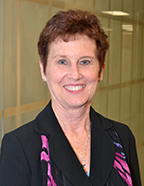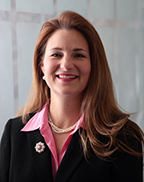Ecumen Joining City of Apple Valley In Design Workshop Focused on Making Aging Advantageous to Cities
How does a city actually become “age friendly” to create competitive advantage amidst unprecedented demographic change?
Answers will come in a unique three-day work workshop September 30th to October 2nd in Apple Valley, Minnesota, which like most American communities is grappling with these very questions as their populations grow older in record numbers. Local, national and global experts from diverse sectors will create a roadmap for Apple Valley and cities globally that desire to turn “Age Friendly Community” from a phrase into a reality.
The workshop will be convened by Vitalocity! – a new consultancy founded by a group involving Ecumen , Kendal Corporation a Pennsylvania-based senior services nonprofit company, and BusinessLab, a UK-based global strategy consultancy. From September 30 through October 2, these founding partners will be joined by Apple Valley residents and community leaders along with representatives from global organizations such as the International Federation on Ageing, a World Health Organization (WHO) partner; Perkins Eastman, an international architectural and design firm; Sodexo, which provides nutritional and other quality of life services to more than 75 million consumers worldwide and global technology company, IBM.
The Problem: Our Cities Aren’t Designed for Aging
In today’s cities, if you’re not spry and mobile, you’re largely out of luck. This isolates people, limits their contributions to a city’s social and economic vitality, and can have significant health impacts.
Exploring this phenomenon in depth, WHO created the WHO Age Friendly City Framework, which provides eight characteristics (below) necessary for an age friendly city. The Framework is a critically important step in creating cities for all ages and stages, and more than 250 cities have subscribed to its tenets. But no entity exists globally that cities can turn to for cohesive planning and technical advice to turn the Framework into results.
Vitalocity! seeks to change that by bringing diverse skills and expertise together to help cities deliver phased, measurable, quantifiable results based on the eight components (below) of the WHO’s Age Friendly City Framework:
- Respect and social inclusion
- Outdoor spaces and buildings
- Transportation
- Communications and information
- Social participation
- Housing
- Community support and health
- Civic participation and employment
Our Cities’ Changing Population Driving Age-Friendly Strategy
For the first time in history, more than half of the human population - 3.3 billion people - live in cities. By 2030, this is expected to swell to almost 5 billion. And this population is getting older. For example, in the last 10 years, in every one of America’s 51 largest major metropolitan areas, the number of children relative to the number of elderly has declined. In Pittsburgh, which is America’s oldest city demographically, almost 25% of the metro area’s population is over 60.
Locations long considered magnets for the young and hip are also aging rapidly. In Manhattan and San Francisco, almost 20% of the population is over 60, well above the national average.
According to a new report by Harvard’s Joint Center for Housing Studies and AARP, in 1990, less than 5 percent of U.S. counties had a population where adults over 50 made up more than 40 percent of the community (that was 156 counties). By 2010, this was true of 33 percent of all U.S. counties (or 1,031 of them). The U.S. population over age 65 is expected to include 73 million people by 2030 (that's about 33 million more than today).
And most of these people live in metropolitan areas, particularly suburbs, making Apple Valley an ideal location to launch this important work and turn age friendly design in our world from concept to reality.
Kathryn Roberts Named Chair-Elect of LeadingAge Board of Directors
Kathryn Roberts, president and CEO of Ecumen, is the new chair-elect to the LeadingAge Board of Directors. LeadingAge is the national association of nonprofit aging services organizations.
 “Kathryn Roberts is a visionary leader who has created a culture of quality and innovation for Ecumen,” said LeadingAge President and CEO Larry Minnix. “LeadingAge is privileged to have her share her passion and expertise with our association as chair-elect.”
“Kathryn Roberts is a visionary leader who has created a culture of quality and innovation for Ecumen,” said LeadingAge President and CEO Larry Minnix. “LeadingAge is privileged to have her share her passion and expertise with our association as chair-elect.”
The LeadingAge Board of Directors is responsible for the governance of the organization, providing strategic direction, fiduciary oversight and development of policies. As chair-elect in 2014, and ultimately as Chair in 2015, Roberts will have the opportunity to help shape LeadingAge's work to transform the experience of aging in America.
Gayle Kvenvold, president and CEO of Aging Services of Minnesota said, “Kathryn is a leader in expanding the possibilities of aging, and will continue to bring her spirit of innovation, empowerment and collaboration to this new role.”
Roberts’ election marks the first time in association history that a member of Aging Services of Minnesota has been elected to this level of leadership position with its national association.
Julie Murray Promoted To Ecumen Vice President of Sales, Marketing and Business Development
Julie Murray has been promoted to the new role of vice president of sales, marketing and business development at Ecumen.
In announcing the promotion, Ecumen President and CEO Kathryn Roberts issued this announcement to Ecumen staff:
 “This new position recognizes Julie’s combined leadership of three key areas: Ecumen’s sales and marketing efforts, real estate development and new business partnerships. Julie’s new job is effective immediately, and she will continue working closely with Steve Ordahl until his retirement in January 2014.
“This new position recognizes Julie’s combined leadership of three key areas: Ecumen’s sales and marketing efforts, real estate development and new business partnerships. Julie’s new job is effective immediately, and she will continue working closely with Steve Ordahl until his retirement in January 2014.
“Just over a year ago, Julie was named Ecumen’s vice president of sales, marketing and new ventures. In that time, Julie has assembled a talented team, including Matt McNeil, Diane Kenney and Tami Allenson to expand and support sales and marketing efforts across Ecumen. At the same time, the business development team has gained the skills of Dena Meyer, director of business development, and Kaili Braa, administrative assistant, and we are actively recruiting for an open director of business development position.
“Julie’s collaborative leadership has led to a new company-wide sales and marketing function this past year, featuring better training, tools and accountability. This approach has quickly improved our occupancy levels in both existing and new properties and identified new revenue streams based on innovative approaches to aging services. Julie also is exploring new partnerships that can help us expand our services in the Twin Cities and other markets.
“Julie has 15 years of senior housing experience that prepares her well for her new multifaceted role. She started at Ecumen in 2007 as director of real estate development and led the development of new Ecumen housing in Apple Valley and Maplewood, both winners of the Minneapolis St. Paul Business Journal's "Best in Real Estate" award for senior housing communities. Before that, Julie worked for Greystone Communities, Inc. in Dallas where she was responsible for the sales and marketing of multiple entry-fee continuing care retirement communities as a regional director of sales and marketing. Julie is a graduate of Texas Tech University where she received a Bachelor of Science degree in Restaurant, Hotel and Institutional Management.
“Please join me in congratulating Julie on this new role.”
Ecumen CEO Kathryn Roberts Thanks Residents, Donors and Friends at Ecumen Pathstone Living Luncheon
Ecumen President and CEO Kathryn Roberts spent time discussing Ecumen’s Awakenings program with Roger Bock, a recent short-stay rehab “graduate” from Ecumen Pathstone Living in Mankato, at a luncheon on Monday, October 7.
Roberts thanked over 60 residents, families, donors, volunteers, funders and rehab alumni for their support and partnership, and highlighted Ecumen’s Changing Aging initiatives. One of those initiatives is Ecumen Awakenings – a pilot program to reduce the use of anti-psychotic medications for those with Alzheimer’s and related dementias. Roberts used the example to illustrate how new collaborations, new possibilities and new solutions are making lives better in Mankato and across the country.
Upcoming fundraising events at Ecumen Pathstone Living in Mankato include their annual Lights of Honor celebration on Sunday, November 3, and the Scandinavian Bake Sale on Saturday, December 7.


